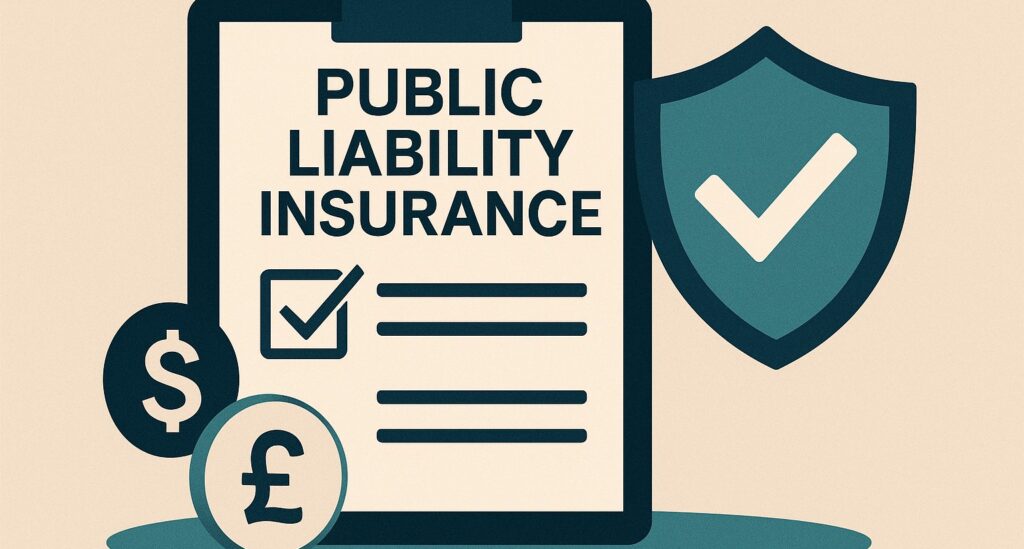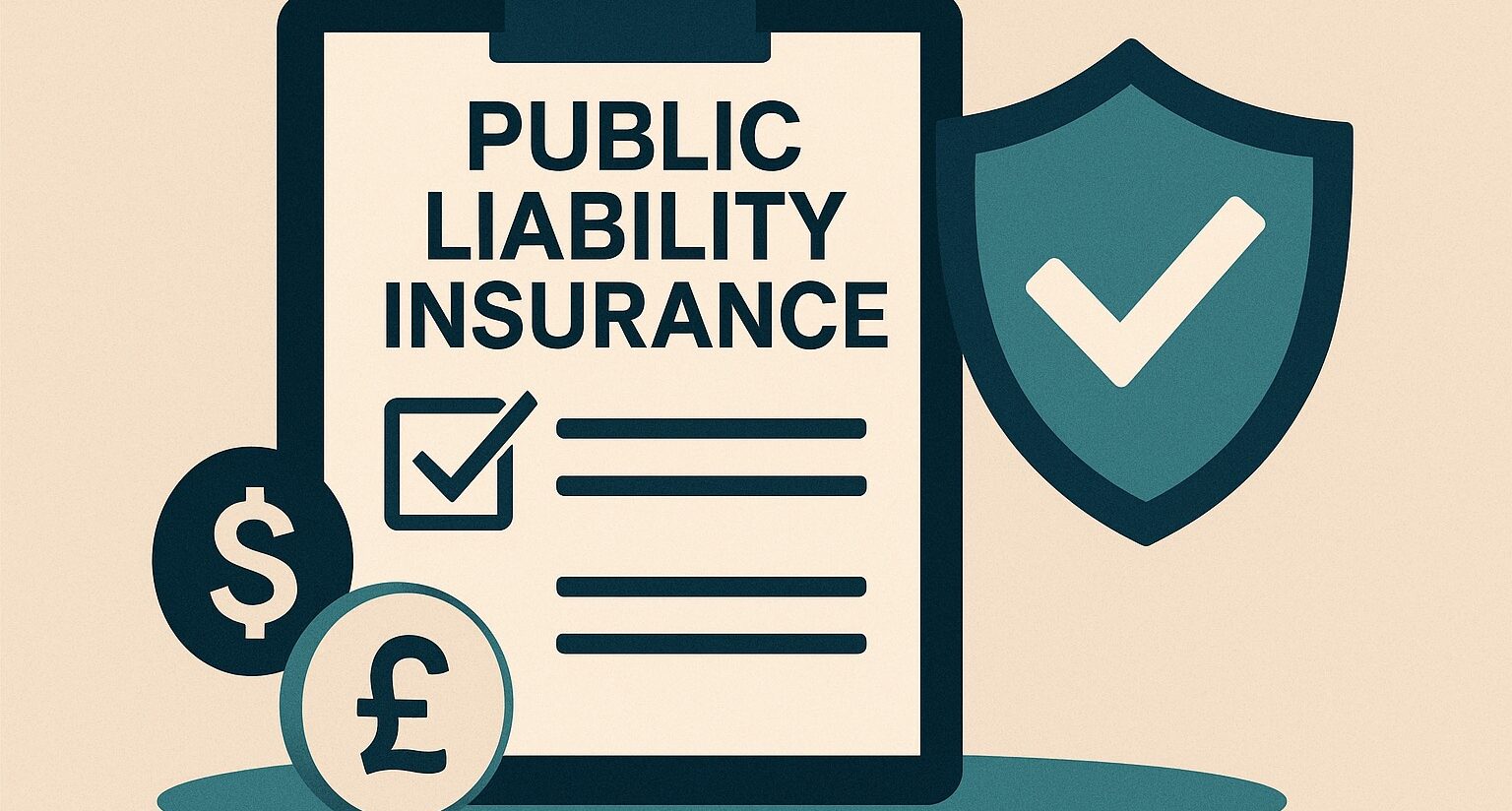
Public Liability Insurance in the USA: A Complete Guide
In today’s litigious society, running a business without adequate insurance coverage can be risky—especially when interacting with the public. Whether you operate a small coffee shop, organize public events, or are a contractor who visits clients’ properties, there’s always a chance that an accident could happen. Someone could slip on your floor, get injured by your equipment, or suffer damage to their property due to your operations. In such cases, public liability insurance acts as a financial safety net. It protects businesses and professionals from the legal and financial consequences of being held liable for third-party injuries or property damage.
In the United States, where civil litigation is not only common but also costly, public liability insurance is not just a wise precaution—it’s often a necessity. This article will provide a comprehensive overview of public liability insurance in the U.S., including its importance, coverage options, where to get it, and a step-by-step guide on how to apply.
What is Public Liability Insurance?
Public liability insurance (PLI) is a type of business insurance designed to cover legal costs and compensation payments if your business is found liable for injury or damage to third parties—members of the public, clients, or vendors—while on your business premises or as a result of your operations.
Key Features:
Third-Party Bodily Injury: Covers injuries to customers or other non-employees caused by your business activities.
Third-Party Property Damage: Pays for damage to someone else’s property caused by you or your employees.
Legal Expenses: Includes costs for legal defense, settlements, or court-ordered compensation.
Importance of Public Liability Insurance in the USA
In the United States, legal claims against businesses can easily reach tens or hundreds of thousands of dollars. A single lawsuit could bankrupt a small business or severely impact a larger company’s operations. Having public liability insurance is essential for the following reasons:
Financial Protection: Shields your business from out-of-pocket expenses in the event of claims.
Legal Compliance: Some states and industries require proof of liability insurance before granting permits or licenses.
Business Credibility: Clients and partners are more likely to trust insured businesses.
Contractual Requirements: Many commercial contracts require contractors or vendors to have liability insurance.
Who Needs Public Liability Insurance?
While it’s more common in certain industries, nearly any business that interacts with the public should consider getting public liability insurance. Common examples include:
- Retail Stores
- Restaurants and Cafes
- Event Planners and Venues
- Construction Contractors
- Freelancers who visit clients
- Maintenance and Cleaning Services
- Beauty Salons and Spas
If you operate in a physical location that customers can visit or if you go to clients’ premises, you are at risk of causing unintentional damage or injury.
Coverage Limitations
While public liability insurance is broad, it’s important to understand what it does not cover:
Employee Injuries: These are covered under Workers’ Compensation Insurance.
Professional Mistakes: You need Professional Liability (Errors & Omissions Insurance) for that.
Damage to Your Own Property: Covered under Commercial Property Insurance.
Intentional Acts: Deliberate or illegal activities are not covered.
Where to Get Public Liability Insurance in the USA
There are many reputable providers of public liability insurance in the U.S. Some cater specifically to small businesses, while others serve large corporations. Here are some of the best-known and widely used insurance providers:
Hiscox
- Focuses on small businesses and freelancers.
- Offers customizable coverage.
- Easy online application process.
- Website
Progressive Commercial
- Well-known brand offering a range of commercial insurance.
- Bundle options for more savings.
- Website
Next Insurance
- Digital-first provider specializing in small businesses.
- Fast quotes and mobile-friendly app.
- Website
Nationwide
- Offers liability insurance as part of comprehensive business insurance plans.
- Known for customer service and national reach.
- Website
State Farm
- Offers personalized service through local agents.
- Ideal for small to mid-size businesses.
- Website
The Hartford
- Known for flexible policy options and customer support.
- Offers risk assessment and tailored plans.
- Website
Thimble
- Provides on-demand, short-term liability coverage.
- Ideal for freelancers or event-based businesses.
- Website
How to Apply for Public Liability Insurance
Getting public liability insurance is relatively straightforward, especially with the rise of online insurance platforms. Here’s a step-by-step guide:
Assess Your Needs
Determine the level of coverage you require based on:
- Industry risks
- Number of employees
- Business size and revenue
- Contractual obligations
- Types of clients and locations
Get Quotes
You can do this by:
- Visiting insurer websites listed above
- Using comparison websites like CoverWallet or Insureon
- Speaking with an independent insurance broker
Compare Policies
Look beyond just the price. Review:
- Coverage limits
- Deductibles
- Inclusions and exclusions
- Add-on options like product liability or professional liability
Submit an Application
Most providers will ask for:
- Business name and contact info
- Business type and services offered
- Years in operation
- Number of employees
- Annual revenue
- Claims history
Review the Offer
Once approved, you’ll get a policy document outlining your coverage. Review it carefully. Look for:
- Effective and expiration dates
- Limit per claim and aggregate limit
- Any exclusions or endorsements
Make the Payment
You can usually pay:
- Monthly or annually
- Via credit card, bank transfer, or through a broker
Obtain a Certificate of Insurance (COI)
A COI is proof that you are insured. You may need this to:
- Bid on contracts
- Rent commercial space
- Work with large clients
Cost of Public Liability Insurance
The cost can vary based on a number of factors. On average, small businesses in the U.S. pay $30 to $75 per month, or $400 to $900 per year for basic public liability coverage.
Factors Affecting Cost:
- Business type (e.g., construction is riskier than consulting)
- Location
- Revenue and payroll
- Coverage limits
- Claims history
Tips for Managing Your Liability Risks
While insurance offers financial protection, prevention is always better than cure. Here are some ways to minimize liability risks:
- Regular safety audits of your premises
- Employee training on safety and customer service
- Clearly displayed warning signs (e.g., “Wet Floor”)
- Written policies and procedures
- Keeping detailed records of incidents
Public liability insurance is a vital component of responsible business ownership in the USA. It not only protects your business from potentially devastating legal claims but also enhances your credibility and peace of mind. Whether you’re a solo freelancer, a small retail shop owner, or a contractor managing multiple sites, having the right coverage is essential.
With a variety of insurance providers offering customizable plans, getting public liability insurance is easier and more affordable than ever. By understanding your specific risks and following a clear application process, you can secure the protection your business needs to thrive in a competitive and liability-conscious marketplace.
